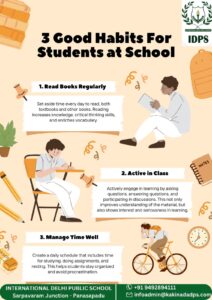What Are Field Trips at DPS Kakinada?
Field trips at Delhi Public School Kakinada are organized educational outings that provide students with hands-on experiences related to their academic subjects or co-curricular interests. These trips vary from one-day excursions to multi-day adventures and are aligned with subjects such as history, geography, science, environmental studies, and social awareness.
The goal is to create a balanced mix of learning, engagement, exploration, and fun, ensuring students get a holistic educational experience.
Why Are Field Trips Important?
Field trips are more than just breaks from routine—they are valuable learning experiences. Here’s why DPS Kakinada prioritizes them:
- Bridges Theory and Practice: Reinforces classroom lessons with real-life application.
- Stimulates Interest and Curiosity: Encourages students to ask questions and think critically.
- Promotes Social Development: Students bond with peers and teachers outside the classroom setting.
- Improves Observation Skills: Sharpens students’ attention to detail and analytical thinking.
- Supports Emotional Growth: Builds independence, adaptability, and confidence.
How DPS Kakinada Plans Engaging Field Trips
Planning a successful field trip requires clear objectives, safety protocols, and smooth logistics. DPS Kakinada ensures this through:
- Curriculum Integration
Trips are selected to align with subjects like science (e.g., botanical gardens), history (e.g., forts or museums), and geography (e.g., wetlands, plantations). - Student-Centric Design
Age-appropriate destinations and activities are chosen to match students’ learning levels and interests. - Engaging Itineraries
Each trip includes guided tours, interactive activities, Q&A sessions, and group tasks to keep students involved. - Pre-Trip Preparation
Teachers brief students on objectives, expected outcomes, behavior, and safety measures. - Post-Trip Reflection
Students often submit reports or presentations to share their learnings and experiences.
Key Features of Field Trips at DPS Kakinada
- Diverse Destinations: Science parks, planetariums, historical landmarks, rural villages, industries, eco-tourism spots, and more.
- Interactive Learning: Real-time observation, expert talks, and hands-on experiments.
- Safety-First Approach: First-aid kits, student-to-teacher ratio, and emergency protocols are strictly followed.
- Parental Communication: Parents are informed in advance with consent forms and detailed trip plans.
- Documentation and Feedback: Photographs, journals, and feedback forms are part of the learning loop.
Benefits of Educational Field Trips for Students
- Makes Learning Fun and Memorable
Experiencing things in real life leaves a lasting impression compared to textbook reading. - Boosts Engagement and Motivation
Students look forward to these educational adventures, increasing overall interest in subjects. - Encourages Teamwork and Communication
Working in groups and navigating new settings improves interpersonal skills. - Expands Worldview
Exposure to diverse places, people, and practices helps students become more culturally and socially aware. - Teaches Responsibility
Students learn to follow schedules, take care of personal belongings, and respect public spaces.
Step-by-Step Process for Planning a Field Trip
- Objective Setting
- Teachers determine the educational goal of the trip (e.g., learning about renewable energy or understanding wildlife habitats).
- Destination Selection
- Based on curriculum needs, proximity, cost, and educational value.
- Permissions and Budgeting
- Obtain necessary approvals from school management and parents. Set a clear budget covering transport, entry fees, meals, etc.
- Pre-Trip Briefing
- Conduct sessions with students on behavior expectations, safety, itinerary, and learning goals.
- Execution
- Teachers and staff lead the trip, ensuring all students are safe, engaged, and learning actively.
- Post-Trip Activities
- Students share their experiences through presentations, charts, drawings, or written reports. Teachers evaluate outcomes against the trip’s objectives.
Conclusion
Delhi Public School Kakinada’s field trips are thoughtfully curated journeys that turn everyday learning into real-life discovery. By blending academic value with outdoor excitement, the school fosters a culture of curiosity, confidence, and critical thinking. These trips are more than just school events—they are educational adventures that inspire students to see the world differently and apply what they learn in meaningful ways.
Whether exploring nature trails, marveling at architectural wonders, or interacting with industry experts, DPS Kakinada students come back from each trip enriched, empowered, and ready to embrace learning with renewed enthusiasm.
Frequently Asked Questions
Destinations are chosen based on their educational value, safety, and relevance to the curriculum.
The school ensures adequate supervision, emergency protocols, and safe transportation arrangements.
Students attend orientation sessions and are provided with guidelines and expectations before the trip.
After the trip, students engage in discussions, presentations, or assignments to reflect on their experiences and reinforce learning.
Yes, DPS encourages parent volunteers to participate in organizing and accompanying trips.







